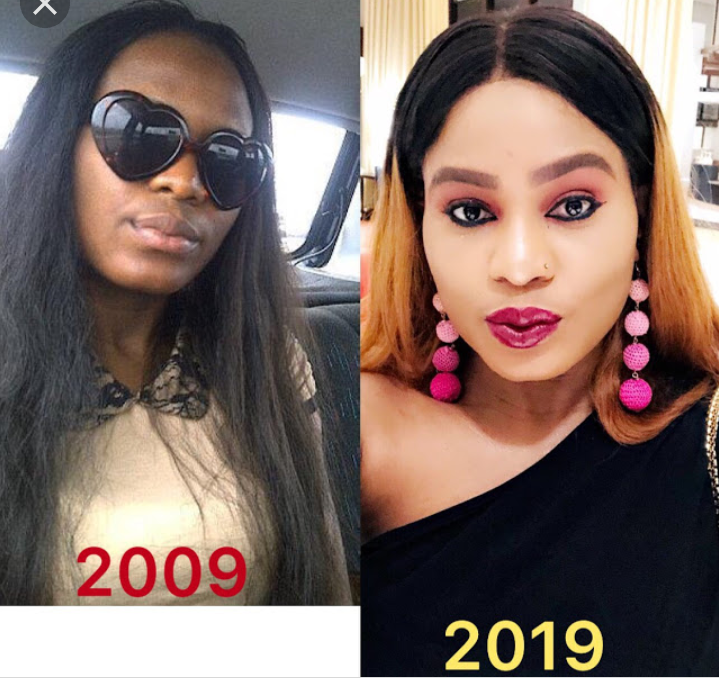As is well known, skin bleaching or whitening is a widespread habit for many Southern Sudanese, particularly women and girls. Why do some blacks have to hate their color so much? As creams for skin whitening are trendy on the cosmetics markets, some white or light-colored fellows desire or would consider blackening theirs. People have linked skin whitening and colorism to a complex history of colonialism, slavery, and low self-esteem. All skin color changes are attributed to discontentment with oneself.
A famous white lady called Ruth from Britain amazed people in a YouTube video when she said she hated her natural white skin. She wanted a darker complexion and thus narrated. Ruth would spend hours under the scorching sun on various beaches just to tan her skin color. This white lady says she spent lots of money to get a different tone of color, but all her efforts were in vain. People wondered why a white woman would want to darken her skin, yet many wished to bleach theirs. She said she hated the color she was born with, hence her dissatisfaction.
South Sudan Banned Skin Bleaching
Purchasing skin lightening creams continue despite the government’s bans. The government of South Sudan says it halted the sale and use of bleaching cosmetics in the country.
Peter Baak, Director General, Drug and Food Control Authority, South Sudan, says, “We have banned the use of body whitening creams, the policy is clear, and we will continue to make sure that our market in South Sudan is free from unwanted cosmetics to ensure that our people are not harmed.”
Most of the markets in Juba nonetheless, have many shops where bleaching agents are available. Citizens such as Joyce Keji often access and use these cosmetics.
“Skin-whitening is good, I like it because it makes me look like a white lady, but I don’t want to overdo it. I want to maintain how I look now. My advice to those whitening their skin is not to apply too much at once. The whitening process takes time,” Joyce Keji Emmanuel, a Juba resident, says.
Before independence in 2011, Arab Sudanese, with lighter skins, controlled Khartoum as a then-united Sudan. Khartoum’s following regime’s fundamental aim was to make the whole Sudan an Islamic and Arabic state. The light-skinned people in Sudan oppressed those in the Southern part of the country religiously, politically and discriminated against them for their skin color. This is why more women have decided to bleach their skin to appear even closer to the people of Arab Sudan.
Skin Bleaching Among South Sudanese Men
Bleaching is not only done by women, but also by some men in South Sudan. Although others oppose whitening their skin, others support it.
Susan Kim Otor, Coordinator of defy-hate-now, says: “I believe in my creator, and he did not make a mistake when he created me black. I believe I am beautiful in my natural color. So, why destroy it with such unnatural things?”
Whereas it is rare to find South Sudanese men bleaching their skin color compared to their women, skin bleaching is a trend. This is mainly among many men in several African countries like Congo, DRC, Uganda, to mention but a few. While many people may wonder why men would bleach their skin and most likely, their reasons might differ from women; it remains a mystery. It all sums up individual preference, sense of security, self-esteem, dignity, and the like.
Is Skin Whitening That Bad?
However, medical experts are warning of the dangers of skin whitening. One should be wary of skin-bleaching products’ active ingredients, as these could be dangerous for skin.
“Some patients also develop deposition of these toxic agents into some organs like the liver because the way you apply it on the skin, it’s absorbed in the blood, taken by the blood circulation system and deposited into various organs. That’s the worst part that many people are experiencing,” Dr. Francis Oromo, a medic, argues.
Skin bleaching can cause skin cancer, allergic reactions, aggravated skin disease, sensitivity to the sun, uneven coloring, and impaired healing. This is a practice that has sipped deep into many African states since the 18th century. This practice will die-hard since each person bleaching their skin has their reasons, and several of them view it as a human right.
MORE
- South Sudan President Salva Kiir Receives International Peace Award
- Joshua Cheptegei Vs. Mo Farah, Who Will Win The 2021 Tokyo Olympics?











